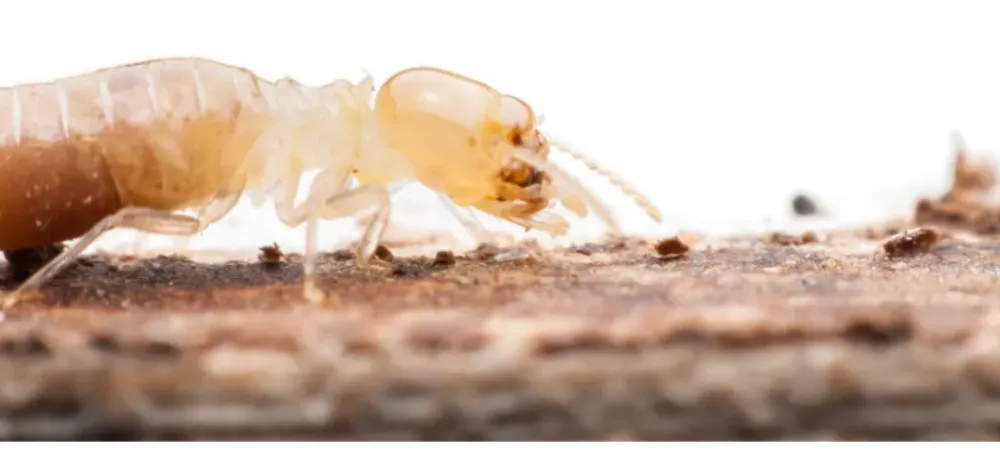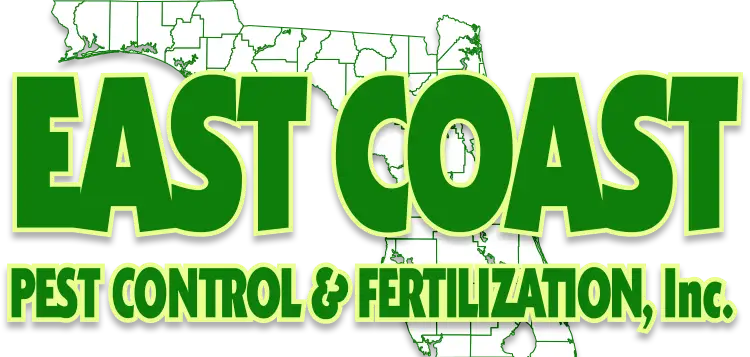Termite Season in Fort Lauderdale

Termites are found in Fort Lauderdale and in most of Florida. They are part of a group of insects called wood-destroying insects. Many different types of termites live in Florida because they thrive in warm and humid climates. There are many different species of termites in South Florida, and they are invasive species. East Coast Pest Control is one easy call away to schedule a visit. Our highly trained technicians will conduct termite inspections and recommend any potential treatments, or help in termite prevention.
Dark Southeastern Subterranean Termites
Drywood termites, such as the southeastern dry-wood termite, live, as their name suggests, in dry wood. Drywood termites love wood structures, wood furniture, old tree stumps, door frames, crawl spaces, wood compost piles, infesting trees, and infesting structures.
Subterranean Termites
Out of all the different types of termites, subterranean termites cause the most problems. Subterranean termites, as the name implies, establish colonies underground. Subterranean termites can have a nest as large as an acre under your house foundation or business foundation. There are several different types of subterranean termites, such as the Formosan subterranean termite, the dark southeastern subterranean termite, the light southeastern subterranean termite, and Asian subterranean termites. Florida’s native subterranean termites include all of the subterranean termites that can be found throughout Florida, except for the Asian subterranean termite, which is mainly found in south Florida. They love moist, wet environments and will often use mud tubes to venture out to find food.
Termite Swarms
Termite season in Florida continues year-round as both winged termites and subterranean termite species thrive in Florida’s warm and damp climate. Termite swarming season, when termite swarmers have been found in Florida in every month of the year except December. For example, the Formosan termites, which are a variety of subterranean termites, begin the swarm in Florida from late April to early May. Unlike subterranean termites, many other termites swarm year-round but are generally greatest from March to May.
Early detection of termites is essential. If you live in or around Fort Lauderdale and are concerned about termites, it’s a good idea to have your property inspected regularly by a licensed pest control operator to determine if there are any termite colonies or any termite infestation. Here at East Coast Pest Control, our technicians are trained to confirm species identification of the specific type of termite. Not all termites respond to all treatments. A termite inspection will help to reveal early infestation and our pest control specialist will help to eliminate termites on your property. They can identify any signs of termite activity and recommend appropriate treatment options to protect your home or business from damage.
Termite Treatments
There are several effective ways to treat termites in Fort Lauderdale. Termite treatments differ depending on the type of termite found. A termite treatment may work well on flying termites, but not on the southeastern dry-wood termite or the west indian dry-wood termite. Have a pest control company verify the termite identification before beginning any type of termite treatment.
Here are some of the most common methods used by pest control professionals:
- Liquid Termiticides: This method involves applying liquid chemicals around the perimeter of your home or business to create a barrier against termites. The termiticide is then absorbed into the soil and prevents termites from entering the building. This treatment can also be used for spot treatment on active infestations.
- Bait Systems: This method involves placing bait stations around the perimeter of your property, which attracts termites and then distributes a slow-acting toxicant. Baits eliminate colonies of termites and help control many different types of termites. The termites then carry the toxicant back to their colony, where it can eliminate the entire termite population.
- Wood Treatment: If termites are infesting wooden structures, such as furniture or the wooden parts of a home, it may be necessary to treat the wood directly with termiticide.
- Fumigation: This is a more invasive treatment method that involves sealing off a building and introducing a gas that will kill all the termites inside. Schedule structural fumigation to help destroy multiple colony infestations of winged termites and other subterranean termites. Fumigation is usually reserved for severe infestations or in cases where other methods have failed.
It’s important to note that termite treatment is not a one-time solution, and ongoing monitoring and preventative measures are often necessary to prevent future infestations. The pest control industry has many options when it comes to termite solutions. A licensed pest control professional can help you determine the best treatment options for your situation and provide ongoing monitoring and maintenance to ensure that termites stay away from your property.
When looking for an incredible pest control company, look no further than East Coast Pest Control! All of our technicians are highly trained in the most up-to-date termite treatment plans and options. If there is a termite infestation, we will provide a free quote and options to limit any termite damage. We can provide options on how to prevent termites, how to identify the type of termite, and effective treatment plans to get rid of termites. We look forward to helping you with termite prevention, termite treatment, and other pest control needs. Call us today for a free termite inspection and to learn about all of the services we offer.
